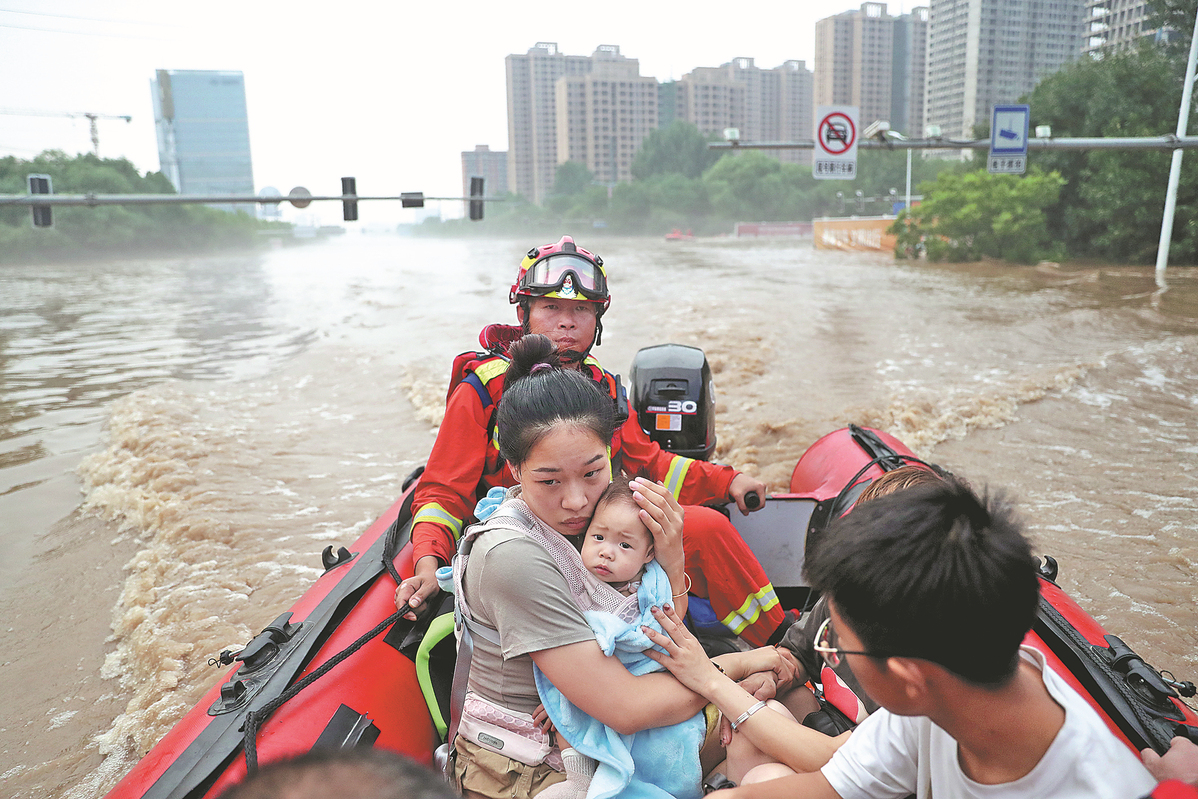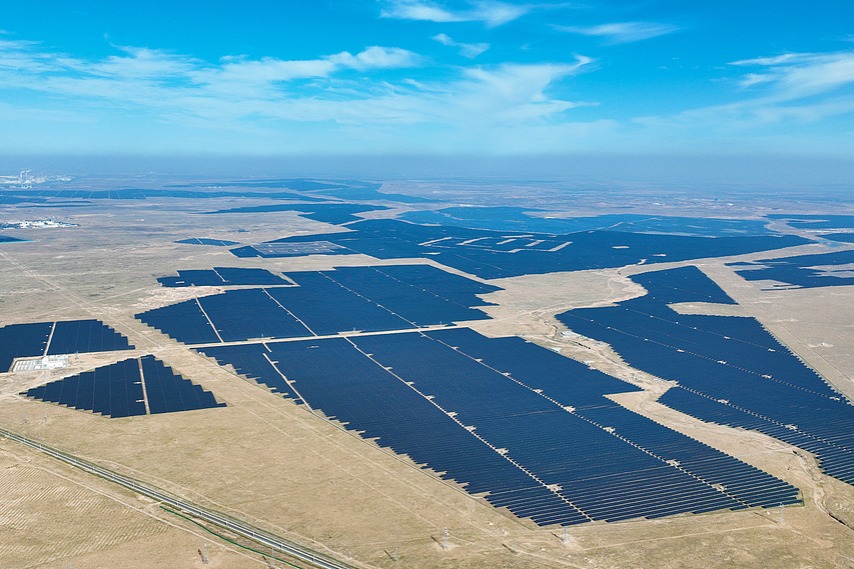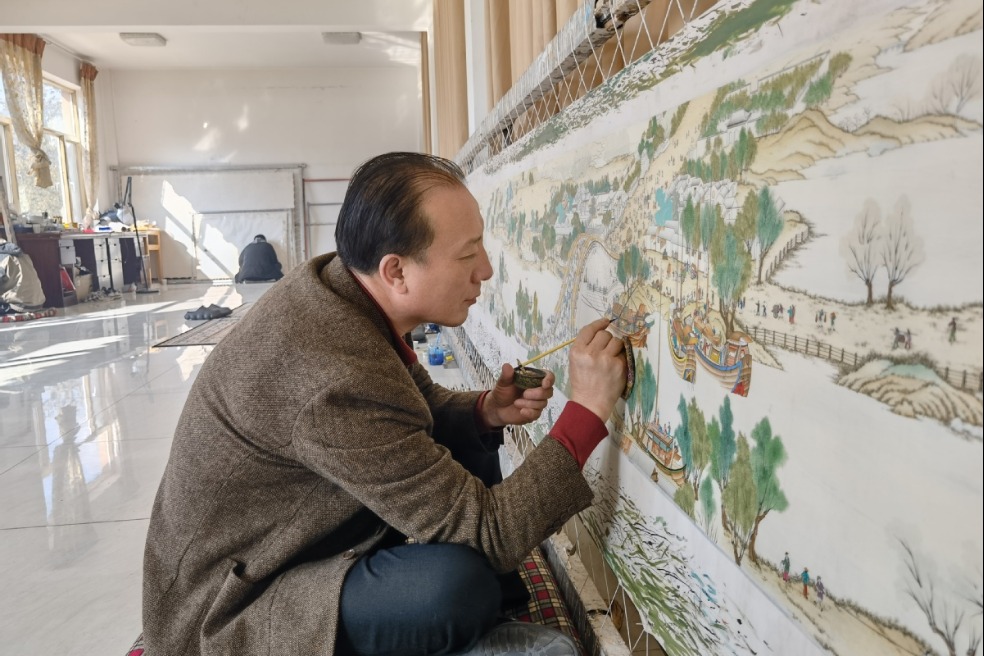Rescuers master challenge as floodwaters take toll


Residents brought to safety in stricken areas of Hebei province
Editor's note: Amid torrential rainfall in the Beijing-Tianjin-Hebei region, our reporter rushed to Zhuozhou, Hebei province, where thousands of people were trapped in floodwaters and waiting for rescue. He recounts his conversations with rescuers and evacuated residents.
A heavy traffic jam formed as vehicles lined up for more than 500 meters waiting to leave the highway at the southern entrance to Zhuozhou, Hebei province.
Many of the vehicles were transporting rescue team members, while some pickup trucks towed inflatable dinghies and motorboats.
The rescue vehicles, arriving from different parts of the country, bore license plates from Shanghai, and Sichuan, Shandong and Shaanxi provinces, among others. The drivers of private cars yielded to these vehicles.
I was driving toward flood-hit Zhuozhou on Wednesday morning, and set the Zhuozhou city government headquarters as the destination on my phone's navigation system. Colleagues kept me updated with real-time information about the floods, and they also told me that the southern entrance to the city was the only one still open to vehicles.
After leaving the highway, I drove through village roads still submerged in floodwaters due to the heavy rain.
The water was not too deep, but traffic lights along the way were not functioning.
Zhuozhou is a county-level city administered by Baoding, with the Taihang Mountains running from northwest to southeast. The North Juma River flows through the north of the city, with six rivers, including the Yongding, the Xiaoqing and the Baigou converging in the area.
Xinhua News Agency reported that as of 10 am on Aug 1, 133,913 people had been affected by the flooding in Zhuozhou, with the affected area covering 225.38 square kilometers.
When I arrived at Runhe Street, Diaowo town, the road was severely flooded, and some drivers were turning back. I parked my car by the roadside, noticing that while SUVs could pass through the water, cars could not.
Sending a vehicle location to myself on my phone, I decided to proceed on foot.
As I continued walking, the water became deeper. Several backhoes, or excavating machines, were being used to ferry stranded people. Those on these vehicles held onto the excavator buckets tightly, afraid that sudden jolts might send them falling into the muddy water.
Nearby, a group of people stood in front of a store selling daily necessities, with some of the shelves already empty. I asked a middle-aged man in the store who was tidying up the shelves, "Boss, do you have any plastic slippers?"
He replied: "We've sold out. The last pair of women's slippers were just bought by an old man."
After stopping a truck to cross a waterlogged section of road, I proceeded along Fanyang East Road, a major thoroughfare in Zhuozhou.
Many people walking toward me were carrying their luggage. Their feet and suitcase bottoms were covered in mud. Their clothes clung to their bodies, soaked either with sweat or rainwater.























